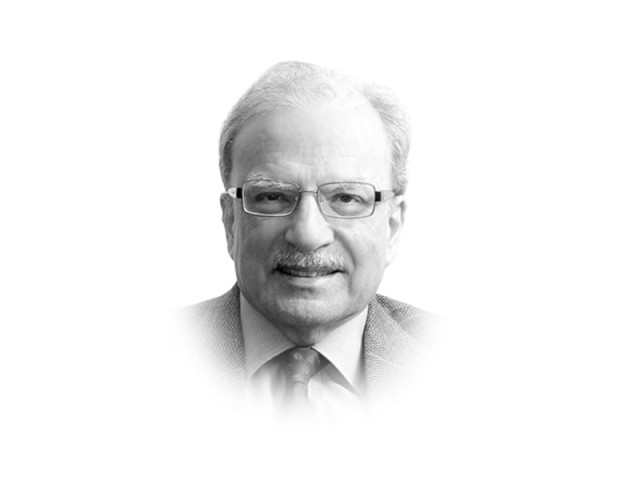Rising Lahore and reviving Pakistan
The plan to build Pakistan’s economic future should factor in the role that Lahore can play in this economic revival.

The writer is a former caretaker finance minister and has served as vice-president at the World Bank
What history tells us is that the fortunes of a large city are determined by the structure of the political system of which it is a part. As will be discussed in this series of articles, Lahore suffered enormously from the wrenching delivered by Partition of British India. During the Pakistan period, Lahore was thrust into the background by the three groups that governed the country in quick succession. For a decade and a half, political power was in the hands of the refugees who had come from the urban areas of the Muslim minority provinces of British India. They settled in Karachi for the simple reason that it was chosen to be the country’s capital. They had fought for the creation of an independent Muslim state to have access to political power. That seat of power was now Karachi. The refugees — later to be called the muhajirs — took command of both the political and bureaucratic systems of the new country. However, their hold over power could not go unchallenged in a country in which they constituted a small minority. This group was replaced by the military that governed with some interruptions for 50 years from 1958 to 2008. It chose to move the capital from Karachi to a new site in the neighbourhood of Rawalpindi, the location of its headquarter. Given the military’s preference for centralised command and control, it put the twin cities of Islamabad and Rawalpindi at the centre of the system of governance. In the period since 2008, the reins of government were in the hands of a political party that was interested in promoting the development of the country’s south. The 2013 elections have fundamentally altered that calculus. But it was not this regional orientation that led the governing group to be sidelined in the elections. It was the great disappointment with the way it governed that removed it so decisively from power.
It was the changing shape of the country’s political landscape that thrust Lahore into the background. While Karachi was being developed as the country’s capital that was where a good part of investment, both by the government and the private sector, went.
Geography matters in economics, particularly the role cities must play in development. If ignored, geography will take its revenge. This is happening in several parts of the Muslim world where cities provide the physical environment, which makes it possible for the disaffected people to coalesce. The May elections have brought the same political party to power in Islamabad, as well as Lahore. It can develop growth strategies for the country and for the province that will complement each other. Rather than stand in the way of Lahore as it begins to work for the realisation of the enormous growth potential of the city and of the province of which it is the capital, Islamabad can — and undoubtedly will — play a supporting role. It will aid rather than deter the city’s advancement and the role it can play in reviving Pakistan — not only its economy, but also the state of its society. Lahore, liberated from the harness of regional politics it was forced to wear, can place itself at the centre of the much-needed efforts to revive Pakistan.
This brief review of history leads to a number of important questions for Pakistan. In its current depressed state, could a city provide the dynamism that the country sorely needs? Could a resurgent Lahore perform that role? Could the political transformation brought about in the country by the elections of 2013, place the capital of Punjab at the centre of Pakistan’s economic revival? The answers to all three questions are ‘yes’. If these are indeed the answers, those who will plan to build Pakistan’s economic future, should seriously factor in the role that Lahore can play in the country’s economic revival. This, then, is the analytical framework I will use for this series of articles.
Published in The Express Tribune, July 22nd, 2013.
Like Opinion & Editorial on Facebook, follow @ETOpEd on Twitter to receive all updates on all our daily pieces.














COMMENTS
Comments are moderated and generally will be posted if they are on-topic and not abusive.
For more information, please see our Comments FAQ